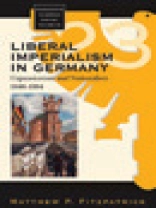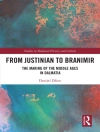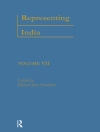In a work based on new archival, press, and literary sources, the author revises the picture of German imperialism as being the brainchild of a Machiavellian Bismarck or the ‘conservative revolutionaries’ of the twentieth century. Instead, Fitzpatrick argues for the liberal origins of German imperialism, by demonstrating the links between nationalism and expansionism in a study that surveys the half century of imperialist agitation and activity leading up to the official founding of Germany’s colonial empire in 1884.
विषयसूची
List of Abbreviations
Preface
Introduction
PART I: A LIBERAL EMPIRE FOR A LIBERAL NATION
Chapter 1. National Unification and Overseas Expansion at the Frankfurt National Assembly, 1848 – 1849
Chapter 2. Mythopoesis –Imperialism as Nationalism
PART II: RECONFIGURING EMPIRE IN THE ‘POST-LIBERAL’ ERA
Chapter 3. Informal Empire and Private Sector Imperialism, 1849-1884
Chapter 4. Bürgerlich Agency and the World of the Verein
Chapter 5. Bismarck and the Socio-Political Context of the Colonial Umschwung
PART III: THE TEXTS OF IMPERIALISM
Chapter 6. Expansionist Agitation after 1849
Chapter 7. Geography and Anthropology in the Service of Imperialism
Chapter 8. Popular Culture and the Transmission of Imperialist Values
Conclusion
Bibliography
Index
लेखक के बारे में
Matthew P. Fitzpatrick lives in Adelaide, Australia and is a lecturer in international history at Flinders University. He has published on German liberalism, nationalism, comparative genocide and on German cultural history. He has been a DAAD visiting postgraduate researcher at the University of Münster in Germany and has also taught at the University of New South Wales, the University of Paderborn and the University of Newcastle.












